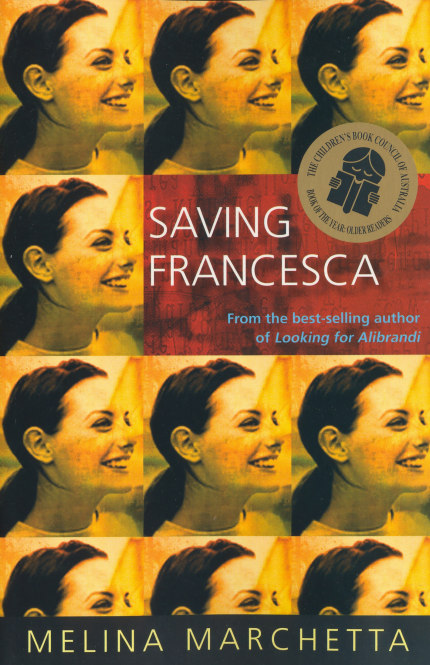Saving Francesca, by Melina Marchetta

Saving Francesca by Melina Marchetta
My rating: 5 of 5 stars
“And when I finish speaking, I kiss her cheek and I take away the tray. And it’s empty. That’s how we begin.”
The “Young Adult” genre and I rarely get along. Call it a generation gap, I suppose, because, let’s face it, at 43 I’m not really the target audience of YA anymore. In fact, my very first note about this book was “I don’t feel like reading about school girls”.
And, yet, there are some YA books that still appeal to me, e. g. “The Fault in Our Stars” by John Green. “Francesca” – like many books recently – somehow ended up on my “to be read” list and when it was their time, I had long forgotten why I wanted to read this. Encouraged by wife (hey, C.!) who had just finished reading it, I just jumped into it.
The story is pretty simple: Francesca Spinelli is the daughter of a mother with an academic background and profession and a father who works as a builder. Finally, there’s Francesca’s younger brother, Luca. Francesca, just having switched schools, is still getting used to her new school and finding new friends, while protecting her little brother as well.
As if that wasn’t enough, her mother suffers a crippling bout of depression and mostly doesn’t get out of bed anymore. Complicating things even more, there’s a guy who actually turns out not only to be very decent but also interested in Francesca.
None of this is very original and we’ve seen such stuff on television and read it in other books. “Saving Francesca”, though, has the virtue of being disarmingly honest about its heroine and the other people in her life. There are no princes (or princesses!) who “save the day”. Just like “the rest of us” life doesn’t only hand Francesca roses but she has to work hard.
At least at the beginning, you feel with Francesca when she tells us how she made it through yet another day. She doesn’t hide anything from the reader and is completely honest about how (bad) she feels but even though sometimes not wanting to get up herself, she refuses to give up and works her way back up again.
Francesca’s friends are the kind we all wish we’d had (or we wish our for our children!): They’re around when Francesca really needs them and make it better, albeit not easier, for her.
This book is not “hard to devour”; originally, I believed it was so popular because it’s uplifting and “easy to digest”. Fast food literature.
I was right and wrong because, yes, this book is ultimately uplifting and inspires hope. It’s not Tolstoi either and, thus, not hard to read. It’s never shallow either, though, but a testament to a literary genre that has merits beyond the literary ones and that is sometimes too easily dismissed.
It doesn’t always have to be War and Peace, after all, but smaller and yet no less enjoyable witticisms make this book very appealing:
“‘You’re judging her by her literacy,’ Tara says. ‘You’re a literacist.’”
“Saving Francesca” and especially its ending, really moved me emotionally and made me rethink my stance on an entire literary genre – if a book can do that, it certainly deserves a place within my favourites – and maybe yours?
Blog | Facebook | Twitter | Instagram
View all my reviews